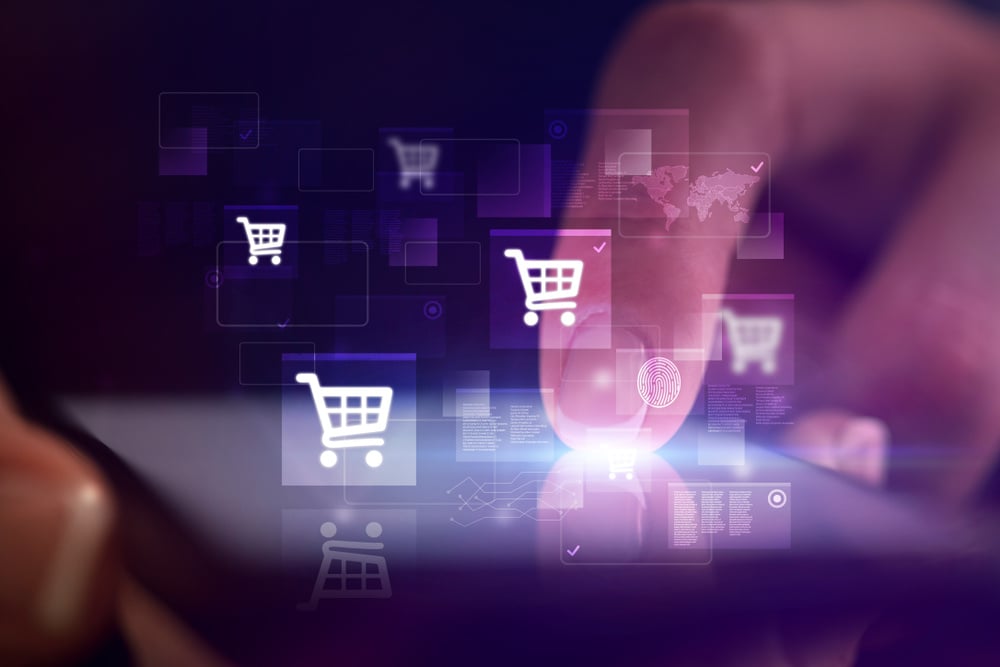
CPG Industry Trends: Unpacking the Future of Consumer-Packaged Goods
It’s no secret that the consumer products industry has rapidly morphed, especially due to the advancement of the e-commerce industry. Many consumers can get the products they need at the click of a button, and their orders will be delivered right to their doorsteps within days–if not hours.
This incredible convenience has fueled the explosive growth of the consumer-packaged goods (CPG) industry. But that’s not all, there are many more exciting trends shaping the future of CPG, especially in cloud resource planning and management. So, what are these transformative CPG industry trends, and how are they revolutionizing the market? And for those who are new to the term, what exactly are consumer-packaged goods?
What Are Consumer-Packaged Goods?
Consumer-packaged goods are fast-moving products that consumers use and replace frequently. These products include:- Food
- Beverages
- Cleaning products
- Toiletries
- Cosmetics
- Candies
- Over-the-counter drugs
- Other consumables
It's important to distinguish your Consumer Packaged Goods (CPGs) from durable goods (DGs). CPGs are for frequent use and regular replacement, while durable goods are replaced only when damaged or worn out. This distinction is crucial for managing inventory and meeting consumer demand.
CPG Industry Trends
As the CPG industry continues to grow, industry players are tirelessly looking for ideas to simplify their operations, be cost-effective, and be more successful. This is why new CPG trends keep emerging.
Here are the latest trends in this industry:
-
Digital Transformation and Technology
-
Digital transformation is at the forefront of the CPG industry's evolution. Companies are leveraging generative AI (gen AI) to enhance their operations, from product development to marketing. ERP systems like SAP Cloud ERP integrate gen AI to predict consumer preferences and streamline production processes, leading to more efficient operations and better shopping experiences. These systems provide a unified platform for data management, driving digital transformation across the organization.
-
-
Evolving Consumer Preferences
-
Consumers spend more time researching products online and are increasingly looking for personalized experiences. The growing demand for convenience has led to a surge in various delivery options and delivery services. As a manufacturer or supplier of CPGs, it’s important to find ways to automate core processes throughout your supply chain to avoid delays and disruptions. Fortunately, you can now incorporate a CPG cloud ERP system that can manage these demands by optimizing logistics and supply chain operations. With features for real-time inventory tracking and advanced analytics, it ensures that delivery services are efficient and meet consumer expectations.
-
-
Revenue Growth Management
-
Revenue growth management is becoming crucial as companies aim to optimize their pricing strategies and promotions. Advanced analytics and AI-driven insights within ERP systems help brands understand market dynamics and consumer behavior. This allows for more effective decision-making and better revenue growth management. ERP solutions offer tools to analyze sales data, forecast demand, and plan promotions, ensuring that brands can maximize their revenue potential.
-
-
The Rise of Private Labels
-
Private-label products are gaining popularity as consumers seek quality alternatives to established brands. ERP systems support retailers in managing their private label products by providing tools for inventory management, procurement, and production planning. With ERP solutions, retailers can efficiently track and manage their private label products, ensuring they meet market demand and maintain high quality.
-
-
Sustainability and Ethical Practices
-
The current global inflation, increase in CPG prices, and consumers' favoring brands that prioritize eco-friendly practices have forced industry players to find ways to make their operations more sustainable. CPG manufacturers and suppliers have discovered the importance of reassessing their production strategies and constantly analyzing changes in consumer behavior.
-
Green ERP systems assist CPG companies in adopting sustainable practices by offering tools for tracking resource usage, managing waste, and ensuring ethical sourcing. For example, your solution can improve how you source raw materials by providing real-time access to your supply chain. This allows you to monitor inventory levels, track production procedures, and identify potential bottlenecks before they occur. These systems provide insights into the entire supply chain, helping companies implement and monitor their sustainability initiatives.
-
SAP Cloud ERP AND THE CPG
Enterprise Resource Planning (ERP) systems, such as SAP Cloud ERP, play a critical role in managing these evolving trends. This ERP solution uniquely benefits the CPG industry by offering real-time insights and advanced analytics tailored to the sector's needs. For example, S/4HANA's predictive analytics can forecast consumer demand with high accuracy, enabling CPG companies to adjust production schedules and inventory levels accordingly.
This capability minimizes stockouts and overstock situations, enhancing operational efficiency. A practical example is a CPG company using S/4HANA to track and analyze sales data in real time, identifying trends that indicate a spike in demand for a specific product. The company can then swiftly increase production and optimize delivery services to meet the growing demand, ensuring that consumers receive their desired products promptly and efficiently.
Future Outlook: AI Cloud ERP
The CPG industry is poised for continued growth, driven by advancements in technology and shifting consumer behaviors. Brands that embrace digital transformation, innovative delivery options, and sustainable practices with a future-proof ERP will likely thrive in this dynamic landscape.
In summary, the future of the CPG industry lies in leveraging generative AI, offering diverse delivery services, and meeting the growing demand for personalized and sustainable products. ERP systems like SAP Cloud ERP are essential in supporting these trends, helping CPG brands enhance their revenue growth management and deliver exceptional shopping experiences. With Navigator Business Solutions, you can ensure your CPG company stays ahead of the curve. Contact us today to learn how we can help you navigate this dynamic landscape and achieve your business goals.

